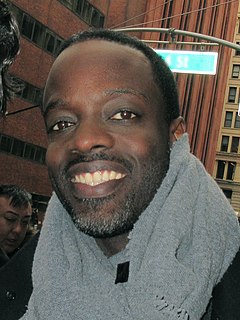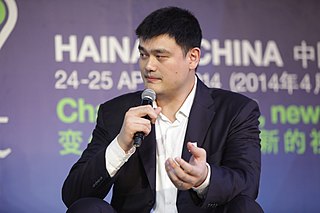A Quote by Lulu Wang
As the Chinese girl, you don't fit in with anybody. It wasn't a large Chinese-American population, so I didn't grow up having a community of Asian friends. Even when there were Asian people, we sort of existed on our own.
Related Quotes
The Chinese Student Association at Cornell put together their own play. It was all Asian people in the cast except for me, because they wanted to do a couple of scenes about an interracial relationship. I was the only non-Asian person on stage; the entire audience was Asian apart from my 10 friends that showed up.
I always feel like people misunderstand the difference between an Asian story and an Asian-American story. That's completely different, too. I have friends who grew up in Asia, and our experiences are so different. Even though we might look the same, I feel like being Asian and then being Asian-American is completely different.
I wish people wouldn't just see me as the Asian girl who beats everyone up, or the Asian girl with no emotion. People see Julia Roberts or Sandra Bullock in a romantic comedy, but not me. You add raceto it, and it became, 'Well, she's too Asian', or, ‘She's too American’. I kind of got pushed out of both categories. It's a very strange place to be. You're not Asian enough and then you're not American enough, so it gets really frustrating.
There's a misconception that I can't relate to the quote-unquote 'Asian-American experience' because I didn't grow up with an Asian mom and dad. And that's just not true. I am Asian American, and so playing a girl who is half Korean, half white, but her white dad tried really hard to connect with her mom's heritage - that's very familiar to me.
Does people not asking me about Asian American literature mean they don't see it as its own literary tradition? I certainly believe in it as its own literary tradition, because your race plays a great factor in how you are seen by the world, and how you see the world; the fact that I'm an Asian American isn't incidental to who I am as a writer. Where it becomes difficult is defining what, if anything identifiable at all, makes an Asian American book an Asian American book, other than the fact of its creator being Asian. And I'd argue that there is nothing identifiable beyond that.







































